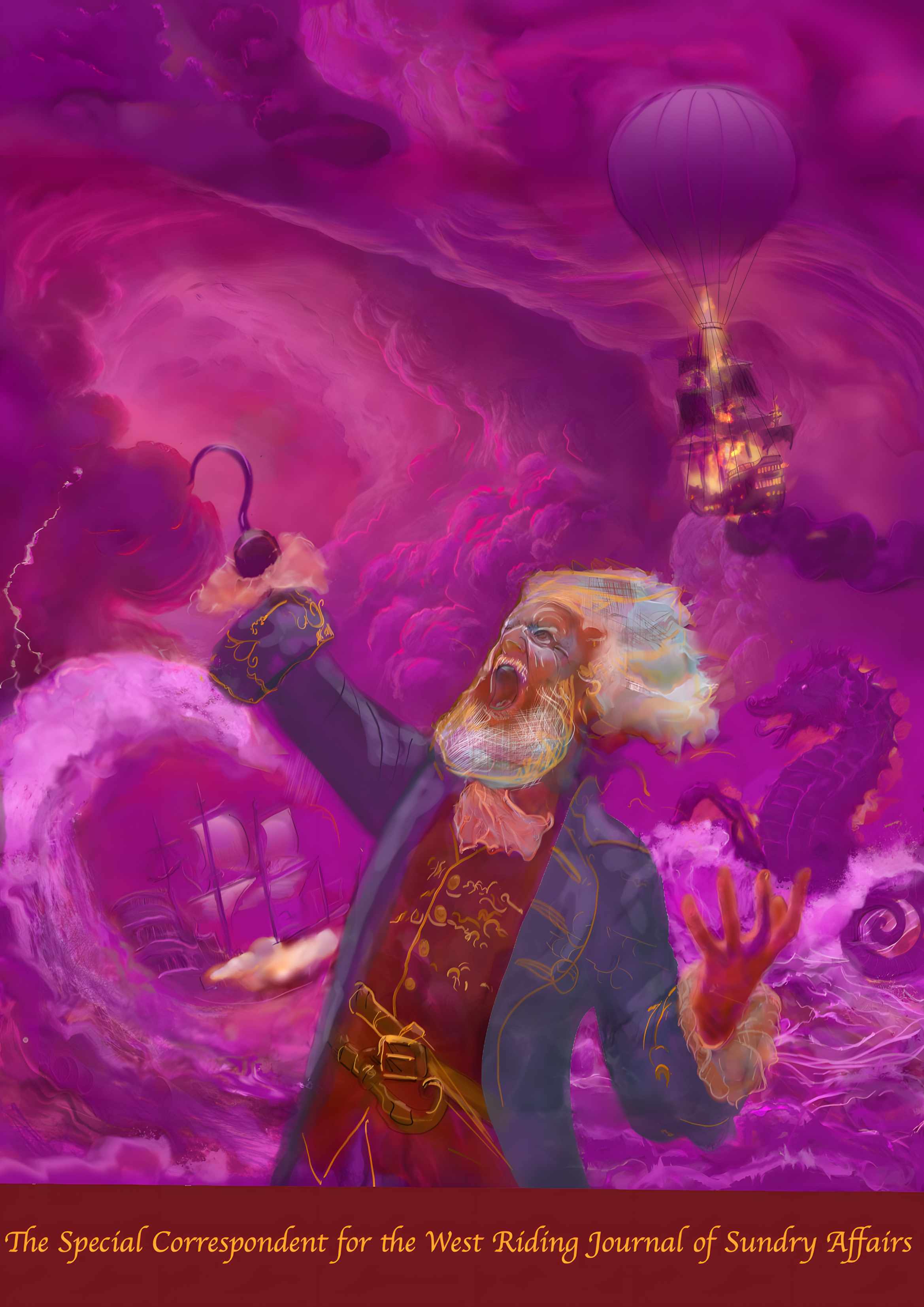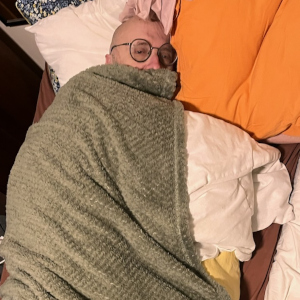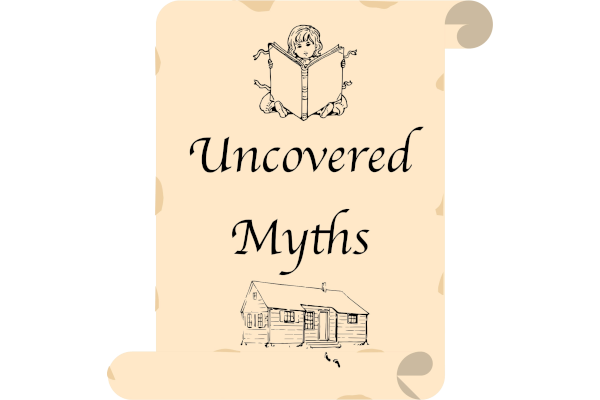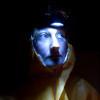By Adam Browne
Here it was, reader, a ship drunk as a lord! A galleon drunk as a rolling barrel!
Yes, reader, it is the Vivisectress! of which I speak! For these are events of its past, which I learned from one of the miserable books the ship’s librarian keeps in his wretched cabin.
But in my disdain for that book’s rank and slimy condition, as well as its sad insistence on historical accuracy, I refer to it only glancingly, by way of introducing my own telling of those events.
The story begins, fortunate reader, with the ship not yet a pirate galleon, but on its way to that exalted state.
Back then it was an armed heavy lugger smuggling a load of cocktail across the Gargoueil Strait.
Called Gallant’s Whimsey, this gruesome admixture of ouzo and coca and black olive liqueur was an invention of the captain’s, who planned to make a killing on the Peninsula.
Well, he might have a better chance of doing so if any stock was left by the time he got there!
It was not just the crew who were drinking it either! No, the captain was worst of the lot! Ha! The man was born to be drunk! Even to say his name was to become drunk! Captain Hipsypipnodon. Go on, reader, try it! Hipsypipnodon! Shout it! You know you deserve it!
And don’t hold back. Because if you get too drunk, you stop being able to say Hipsydipsypipsylipsipsydon ... and sobriety will ensure, alas!
Not that that state was to be found anywhere on the Vivisectress!!
No indeed! Just songs and laughter, and strange loves, and an elaborate wedding at which three were killed, and every other sort of outlandish boister!
Opa!
Little wonder the ship had caught the mood! For as its load was pissed overboard by the gallon, it sat ever more lightly on the water — staggering over the wavetops, steering one way when she meant another. Nor was the drunken crew any help in this matter... The four-day crossing had taken three months so far, with no end in sight. There were numerous blurry misadventures along the way. They felt like memories even as they were happening. A living island, a great shellfish, its grey and pink mantle like a beach, where young Jimmy Peplum was lost, presumed digested. Trade with a purple Moorish ship, the Corflute, driven by propellers like the new steamvessels, its holy underdecks filled with whirling Dervishes, with cog-teeth fitted to their gowns to convert religious ritual into mechanical power...
And there was the time the smugglers attacked a king’s ship.
Yes, reader, you read that right, I assume!
Even the crew couldn’t believe it when it was happening!
It was a reversal of the natural order! It felt like a dream! Especially when the king’s men started shouting nonsense poems while they fought!
‘Five little cannonballs hop on the rail!’ they roared when they met the invaders.
‘One lost her manners and swallowed her tail!’ they shouted when firing small arms.
‘Jellyfish gentleman sweeping the floor!’ a lieutenant hussar shrieked on losing his hand to some return fire.
‘Knuck with your knockles on ‘is big brass door!’ another man cried, leaping over the stricken lieutenant to enter the fray.
The behaviour, as sailors know, was a sign of infection by the ventriloquist fish1.
Bitten by this creature, which was classed by science as a Horror, the victim became insufferably burdened with whimsical rhymes.
It was a bleak condition indeed, for whimsy is the fizz on top of the swallowing yawp of Darkness that underlies all things.
‘Boots full of bombardiers, grapeshot jam!’ the king’s marines bellowed in growing despair, the amusing rhyme bringing the motherless uncaring nature of the world to the front of their thoughts.
It went on. ‘I kissed a grenade and called him ma’am,’ the first mate cried hopelessly, the marines on the retreat.
Weaving, laughing, the invaders stormed below.
‘Captain Dribblebeard smells when the moon doth swell,’ the ship’s treasurer screamed when they blew down his door — crack! a shot! — and the poor man gasped his last.
But his poem was more powerful than death, and went on, the body grunting out further rhymes with gut-gas belches — ‘and his parrot brews beer in Hell...’ — and so on, a pretty accompaniment as the invaders liberated the king of his treasures.
His riches.
Gah, incredible! The treasury was a margarine2 dawn to awaken the pirate in any soul! The opals, the jewels, the diadems! Diadems? Is that what those are? And the talismans — talismen? — and the gold! — an unruly ebullience of bullion! — and here, a jewelled clockwalking automaton-reliquary containing the jaw of Nicholas of Myra, the patron saint of repentant thieves — but there was no repentance here! — opa! they thieved on — an acre of silk a shade of red so delicate it could never be seen, only remembered — diamonds harvested from the ulcers of anthrax patients3 — numerous magical items, including a crown reputed to confer immunity from revenge...
With the willing help of the reliquary-automaton, the new pirates hauled their booty away — ha, booty! They were pirates! — and the Vivisectress! withdrew, trailing a comet tail of coins.
But comets are traditionally a sign of hard luck, and they soon found their ship was damaged. A great penetrating tear in her stern. When had that happened? No memory whatsoever. The carpenter’s drunken efforts at repair only worsened matters. Taking on water, she sat deeper, until entire waves were washing in — and one morning a mako shark was swept into the underdeck galley, where it ate the captain’s favourite cook — who was also his beloved nonna.
Nai! The captain wept to hear the news! Nonna Nisolopoulou! Aiai!
If he had seen little of her in recent years, how tenderly he remembered her now! How fondly she had cared for him as a child! He wept for her, and the times forever lost. He ordered flags at half-mast and no further Gallant’s Whimsey to be taken from the hold until land was spotted.
At once came the call: ‘Land! Land ho!’
And indeed there it was, as if conjured up by a drunkard’s wish, a coastline off the port bow.
Or perhaps the captain’s wish, for the island was the very image of Nonna Nisolopolou.
It was Nonna in coastal form, a rounded headland welcoming them into a gentle harbour washed with rheumy waves.
They ran the ship aground. Repairs were begun, and captain deboarded, leading a party inland for timber and other supplies...
But here the resemblance to Nonna Nisolopoulou ended, for the island offered him nothing.
It was all minerals, a landscape such as one imagines at the beginning of time. The party crossed iron boulders frosted with white crystals, which thickened as they proceeded, continuing onto a plain. Their boots crunched through the rime into a black ooze below. They entered the grateful shade of what might have been a forest, except that the trees were stands of rust.
‘Ágonos hṓsper ho ouranós,’4 the captain muttered, and spirits were low.
But then they found water.
Ha! As one, the party leapt into the pool! ‘First time I’ve drunk water in ages!’ was the cry.
The sun lowered. They washed and splashed and danced — until, suddenly, urgently, from the navigator: ‘Hist!’
He was pointing to the far bank.
They froze. Across the pool, something had emerged from the heat-haze.
It stood patient as a boulder. The captain’s eyes narrowed. It was an animal, a globe of flesh the size of a brewing vat, with four human legs planted wide and four human arms about its curve.
For all its strangeness, the sight struck a bell. An echo ... an old story ... his Nonna’s face came to him, eyes twinkling with the lights of the hearth as she spoke of the world before.
‘Cap’n?’ someone whispered.
It was the midshipman, rifle already levelled.
‘Shall I, sir? ‘Tis a fat lot of meat...’
The captain kept staring. He could not bring himself to nod, but in the end, he did.
What happened next will horrify any reader who is familiar with Plato.
The rifle cracked! and the animal — look away, reader! — fell dead into the water.
Men waded in and took the body to the near bank. And here was a scene, reader, the dark-eyed fated captain standing over this fantastic monster, the horizoning sun enamelling the world in fat orange dazzles. But the beauty did not continue to his sailors, who were greedily discussing how the thing should be butchered.
Pidge, the ship’s barber-surgeon, came up with her hatchet. But someone stayed her, saying the thing was cursed. Or we are, another said, which Captain Hipsypipnodon thought was likely.
In the end, driven by curiosity, he agreed that the thing be butchered; and Pidge got to work, and soon the body was open.
Inside they found two persons twined like rope, their skinless torsos articulated to wind about each other in permanent embrace, their hips intersocketed, their ribcages locked, a single heart trapped between.
Ouai! It was as the captain feared! A ready weeper, he wept again, remembering Nonna Nisolopoulou, telling her tales.
Those times seemed as old to him now as Plato, who had first told these stories.
‘My little heart,’ he remembered Nonna saying. ‘This is about the time when people were not single and apart. We were strongyli back then — round things — two loves united in one. But Zeus was jealous, and split humanity with lightning, and so we wander the world forever, searching for our other half.’
Now, in the orange dazzles, the captain regarded the animal. No, not an animal, but a holdover from ancient times...
He cursed, spat for luck, blew his nose. He cursed Zeus; and then he cursed the sailors who came forward, wanting to cook the meat.
Because circumstance had it that the body could not be properly honoured, he ordered it removed from the area, then the party made camp. The moon rose, its light making tinselling noises in the nightblooming crystals that grew around the pond.
Few slept, and the sentries remained alert, but some while before dawn, two sailors went missing.
Had they deserted? The sailors called for them — no answer — and no one dared venture into the night, so the men were not found until morning.
They were lying together a hundred paces away, stitched together with mineral threads.
The sutures were made with care, as in a medical procedure.
The two men had been cured of their separateness, their skins woven, their limbs wracked and linked, their chests opened, that heart touch heart.
Then — from the navigator — another ‘Hist!’
All looked. Another of the animals had come into view, mounting a rise to the east. The captain watched it wandering aimlessly, or according to some inward aim, guided by twin mirrors of the soul.
It wandered closer, and the party fled.
Hastening through the landscape, the captain saw it with new eyes. Its barrenness was irrelevant, for the natives had no need of sustenance. The one soul gave the other their strength, which was derived from the other from the first, and so on in eternal return.
A third sphere was spotted during their retreat, the great body balancing easily on a single leg, in sign of its inward harmony.
The party ran on. Where another might have learned a lesson on love and belonging from these experiences, Captain Hipsypipnodon took a lesson in shipping.
Reaching the coast, he spotted the King’s ship, the Popinjay, damaged and wallowing beyond the reef.
He rowed out alone. He boarded her, meeting no resistance, so despairing were the crew.
Taking command, he eased the vessel into shore, which was where the real work began.
Uniting the hulls, binding mast to mast, keel to keel, in the end the result floated better than the Vivisectress! ever had before.
They returned to sea. The king’s men and pirates mingled. Lashings of Gallant’s Whimsey were drunk. There were fights and friendships. The marines brightened. New songs evolved, anthems and crude shanties in strange harmonies.
So the Vivisectress! thrived.
Years passing, with hybrid vigour, her hull renewed decade by decade, her crew reborn, their names forgotten but their functions perfected, so she lived on, while this storied level remained, deep below her waterline, where lay the dark loving heart of the Vivisectress!
It beat, and waited and pined.
And for those who do not grasp the truth of that place, there may be an answer in a nonsense rhyme sung by one of the marines, still half-lashed by the ventriloquist fish, as he swabbed the deck:
‘She’s stitched with tar and bolted brass, Her belly’s bare but that shan’t last.
She hums below, she spins her loom — This ship has begun to weave her womb!’
1. Bathypiscus ventriloquialis.
2. Not what you’re thinking, reader. The word means “pearl-like”.
3. A rarer, more literal version of that disease, where anthrax means “coal/carbon”; diamond-production has been observed in very advanced cases.
4. As barren as Heaven/the sky.

![]()
About the Author
 Adam Browne, born in the early 1960s, lives in Melbourne.
Adam Browne, born in the early 1960s, lives in Melbourne.
He is an award-winning writer, and has published numerous sff short stories and three books.
His stories have won the Aurealis and Chronos awards, and two, 'Orlando's Third Trance' and 'Space Operetta', have been adapted as films, the latter, titled 'The Adjustable Cosmos', screened at the Sydney International Film Festival and the Anima Mundi animation festival.
'How the Ship got Heavy-Laden, by Saltpetre Cragg, Pirate and Journalist' will be part of the book 'The Ship's Big Steaming Log', which accompanies the play 'Bladderwrack", opening in Melbourne in November this year (2025).
![]()



















 Barry Yedvobnick is a recently retired Biology Professor. He performed molecular biology and genetic research, and taught, at Emory University in Atlanta for 34 years. He is new to fiction writing, and enjoys taking real science a step or two beyond its known boundaries in his
Barry Yedvobnick is a recently retired Biology Professor. He performed molecular biology and genetic research, and taught, at Emory University in Atlanta for 34 years. He is new to fiction writing, and enjoys taking real science a step or two beyond its known boundaries in his Tara Campbell is an award-winning writer, teacher, Kimbilio Fellow, fiction co-editor at Barrelhouse, and graduate of American University's MFA in Creative Writing.
Tara Campbell is an award-winning writer, teacher, Kimbilio Fellow, fiction co-editor at Barrelhouse, and graduate of American University's MFA in Creative Writing.
 Ed lives with his wife plus a magical assortment of native animals in tropical North Queensland.
Ed lives with his wife plus a magical assortment of native animals in tropical North Queensland. My time at Nambucca Valley Community Radio began back in 2016 after moving into the area from Sydney.
My time at Nambucca Valley Community Radio began back in 2016 after moving into the area from Sydney. Tim Borella is an Australian author, mainly of short speculative fiction published in anthologies, online and in podcasts.
Tim Borella is an Australian author, mainly of short speculative fiction published in anthologies, online and in podcasts. Geraldine Borella writes fiction for children, young adults and adults. Her work has been published by Deadset Press, IFWG Publishing, Wombat Books/Rhiza Edge, AHWA/Midnight Echo, Antipodean SF, Shacklebound Books, Black Ink Fiction, Paramour Ink Fiction, House of Loki and Raven & Drake
Geraldine Borella writes fiction for children, young adults and adults. Her work has been published by Deadset Press, IFWG Publishing, Wombat Books/Rhiza Edge, AHWA/Midnight Echo, Antipodean SF, Shacklebound Books, Black Ink Fiction, Paramour Ink Fiction, House of Loki and Raven & Drake Merri Andrew writes poetry and short fiction, some of which has appeared in Cordite, Be:longing, Baby Teeth and Islet, among other places.
Merri Andrew writes poetry and short fiction, some of which has appeared in Cordite, Be:longing, Baby Teeth and Islet, among other places. Sarah Jane Justice is an Adelaide-based fiction writer, poet, musician and spoken word artist.
Sarah Jane Justice is an Adelaide-based fiction writer, poet, musician and spoken word artist.
 Emma Louise Gill (she/her) is a British-Australian spec fic writer and consumer of vast amounts of coffee. Brought up on a diet of English lit, she rebelled and now spends her time writing explosive space opera and other fantastical things in
Emma Louise Gill (she/her) is a British-Australian spec fic writer and consumer of vast amounts of coffee. Brought up on a diet of English lit, she rebelled and now spends her time writing explosive space opera and other fantastical things in Mark is an astrophysicist and space scientist who worked on the Cassini/Huygens mission to Saturn. Following this he worked in computer consultancy, engineering, and high energy research (with a stint at the JET Fusion Torus).
Mark is an astrophysicist and space scientist who worked on the Cassini/Huygens mission to Saturn. Following this he worked in computer consultancy, engineering, and high energy research (with a stint at the JET Fusion Torus). Alistair Lloyd is a Melbourne based writer and narrator who has been consuming good quality science fiction and fantasy most of his life.
Alistair Lloyd is a Melbourne based writer and narrator who has been consuming good quality science fiction and fantasy most of his life.